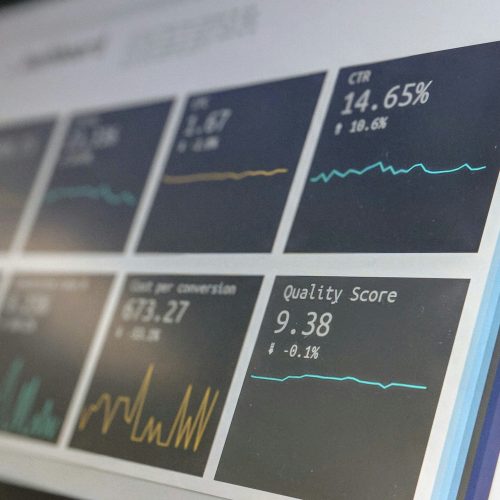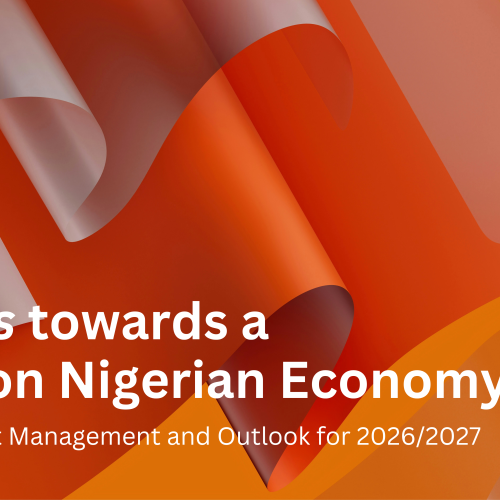The wealth management sub-sector worldwide is no doubt going through a transformative stage, with operations and activities moving from the traditional approach to a more sophisticated and technological approach with heavy reliance on data analytics and artificial intelligence for making decisions.
Artificial intelligence (AI), and particularly generative AI, has become popular in wealth management mainly because of its ability to reshape the entire customer journey, creating more personalised and efficient experiences for clients. Leading wealth management firms like Morgan Stanley and JP Morgan Chase have continued to heavily leverage GenAI to curate customised customer experiences, analyse investment performances and make better investment decisions.
In Nigeria, the financial services sector has experienced significant technological advancements over the years. This is evident in the rapid influx of fintech firms into the country, with traditional banks and wealth management firms playing catch-up. Unfortunately, GenAI deployment in Nigeria has been rather slow due to several important factors, one of which is the high cost of deployment. GenAI solutions are quite expensive due to their ability to process complex data and run simulations in the shortest possible time. The cost implications would significantly impact operating costs and consequently profitability. It is no doubt that many wealth managers would require time to properly plan and budget for its deployment in their business. Other challenges identified are data privacy threats, legality of GenAI output and weak data foundations, especially in a country like Nigeria. Nevertheless, the rewards to be gained in customer experience, better-optimised operations and overall increase in profitability make it all worth it in the end.
Furthermore, over time, there has been the fear that advanced technologies like GenAI would slowly displace humans from their jobs. The reality of this concern is that GenAI has sought and continued to enable financial advisors to become more efficient professionals. Concerns about GenAI’s role are genuine, especially now when investors’ demand for human interaction is evolving; therefore, investment advisors must understand GenAI’s impact and learn to leverage it for long-term relevance. For instance, in 2023, Morgan Stanley launched a new internal AI assistant called AI @ Morgan Stanley Assistant which was designed to help Morgan Stanley financial advisors and support staff access and digest over 100,000 research reports. It is essentially a tailored compendium for finance professionals, designed to assist with answering questions about investment recommendations, general business performance, and internal processes (like completing specific applications). In a memo to Morgan Stanley staff, co-president Andy Saperstein said the AI assistant would “revolutionize client interactions, bring new efficiencies to advisor practices, and ultimately help free up time to do what you do best: serve your clients.”
A replica of AI @ Morgan Stanley Assistant, Moneyball, was launched in 2024 by American wealth management giant JP Morgan Chase. By analyzing 40 years of financial data, Moneyball identifies potential biases, such as the tendency to sell high-performing stocks prematurely and provides insights to improve investment strategies. This AI tool is designed to assist portfolio managers in making more informed investment decisions.
From curating customised customer experiences and optimising business processes to analysing complex investment/financial data and supporting financial advisors, GenAI has proven its usefulness in various functions of wealth management. One of the most important use cases of it in wealth management is client personalisation and profiling. With GenAI, wealth management firms can explore numerous ways to create customised experiences for their clients. By analysing key data inputs, GenAI can efficiently profile both existing and prospective clients, enabling the delivery of tailored services and personalised experiences. Market research and predictive analysis represent another important use case of GenAI. It can assess historical financial data and track market trends in real time, supporting more informed decision-making. By efficiently processing earnings reports, market signals, regulatory updates, and even social media content, AI ensures that no critical information is missed. Other use cases of GenAI include portfolio optimisation, ESG monitoring, fraud detection and security, all of which are critical components of modern wealth management.
In conclusion, GenAI is not merely a conceptual innovation but a vital tool for contemporary wealth management. It is important for asset/wealth management firms in Nigeria to prioritise the adoption of GenAI solutions to optimise their operations. This will enable financial advisers to operate more efficiently, allowing them to focus on critical tasks such as business growth and delivering exceptional customer service, rather than being burdened by monotonous tasks. Additionally, to address the risks associated with deploying GenAI, firms can adopt a multifaceted approach by involving representatives from risk, legal, compliance, IT, and cybersecurity in the initiative to ensure proper oversight and planning. Management teams can also develop a structured framework for selecting and adopting use cases, aligned with the business’ risk appetite and operational readiness.
Adetutu Awojobi, Head of Institutional Sales at Coremars Asset Management, has over 10 years of experience in banking, asset management, and financial planning. A Covenant University and University of Lagos alumna, she excels in client management, market research, and investment advisory services.





